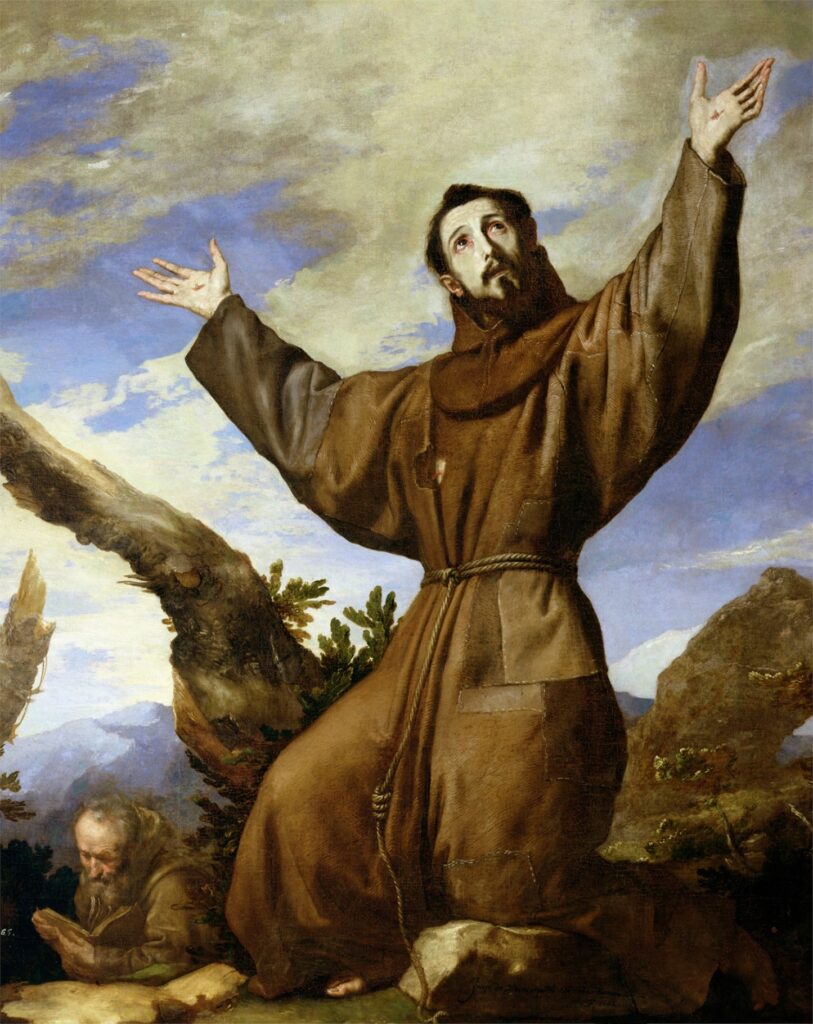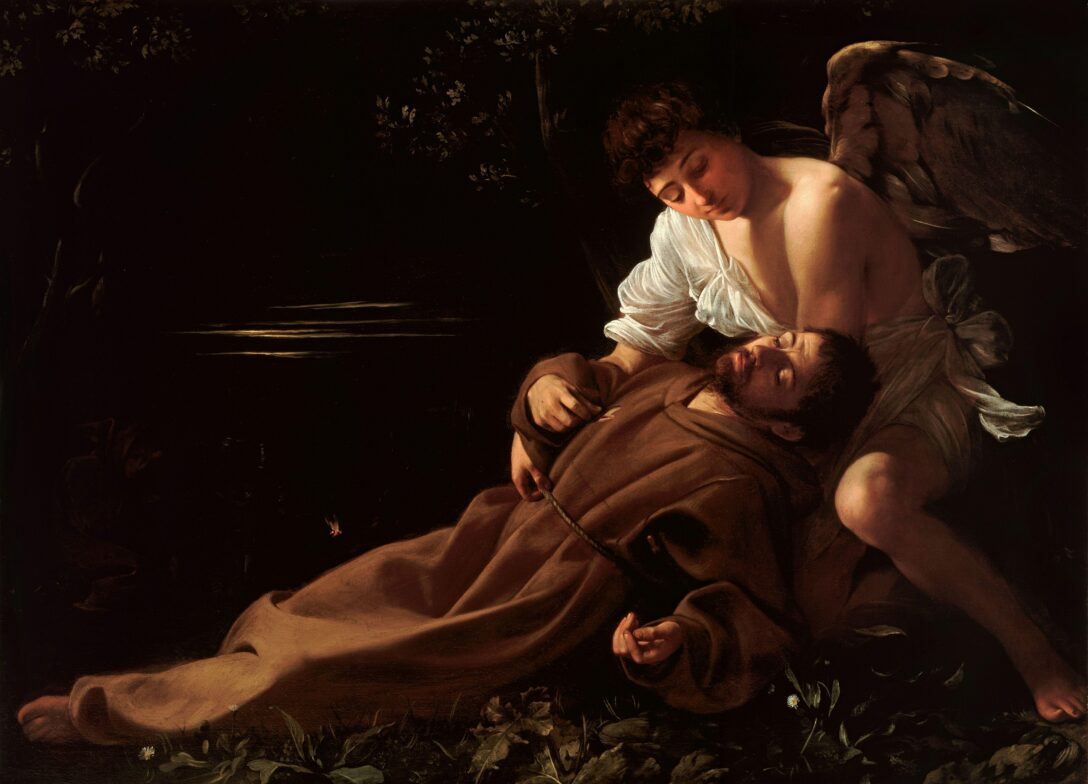Born to a silk merchant, Pietro de Bernadone dei Moriconi and baptised John – Giovanni, but later called Francesco (Frenchman) by this father, maybe because of his French mother.
Francis loved fine clothes and lived a lavish lifestyle as a young man.
At the age of 21 he joined a military expedition against the city of Perugia and spent a year as a captive. At about the age of 24 he had a mystical vision which caused him to re-evaluate his life and abandon fighting. Francis was impulsive about giving away money to those in need. In frustration, his father decided to disinherit Francis officially in front of the local bishop. At which point Francis, in a symbolic act, returned to his father even the clothes he was wearing.
Over the next few years Francis lived a simple life and became ever more convinced he was being called to a religious life with poverty at its heart.
Francis drew others who were inspired by his radical living of the Gospel and by 1208 a small group had come together who lived under a simple rule of radical poverty, chastity and obedience and called themselves the Friars Minor. The Friars lived simply and frequently travelled the country in pairs preaching the gospel in the public squares and on church steps. The preaching was simple, joyful and in the local language.
In 1212 a young heiress of Assisi, Clare, came with some companions to Francis and were to form the second Franciscan Order of Poor Ladies, now known at Poor Clares after their founder.
In 1219 Francis was determined to bring the Crusades to an end by converting the Muslims to Christianity. He went with eleven companions to Damietta, where there was fighting. He managed to be captured and then to see the Sultan. Although he failed in his conversion attempt, he did manage to visit Palestine and gain for the friars the role they keep to this day of guardians of the Holy Places.
The preaching of the friars was having such a dramatic effect in places, that many wanted to join their ranks. A third group to follow the inspiration of Francis was formed in 1221. This third order was for those who, for whatever reason (such as being married), couldn’t follow in the first or second way, but who still felt that a life radical following of Christ was for them.
In 1223 he celebrated the nativity in a new way by introducing a crib (nativity scene) at Christmas.
A year later, whilst on a forty day fast he was found to have the marks of the five wounds of the crucified Christ – the stigmata. His health seems to have deteriorated after this, but not his spirit – he wrote the Canticle of the Sun the following year.
Finally he died in Assisi on 3rd of October 1226 at the age of 44. By his death the Order of Friars Minor had grown to have members in many countries of Europe.

Name: Giovanni di Pietro di Bernardone
1181: Born in Assisi
1208: Established the Friars Minor – Franciscans.
1226: Died in Assisi.
1228: Canonised.
Feast Day: 4th October.
Quote from Saint
We must not be wise and prudent according to the flesh, but, instead, we must be simple, humble and pure.
St Francis of Assisi
Today’s Scripture
Luke 7 New Revised Standard Version, Anglicised
So John the Baptist summoned two of his disciples 19 and sent them to the Lord to ask,
‘Are you the one who is to come, or are we to wait for another?’ 20
When the men had come to Jesus, they said, ‘John the Baptist has sent us to you to ask,
“Are you the one who is to come, or are we to wait for another?”’ 21
Jesus had just then cured many people of diseases, plagues, and evil spirits, and had given sight to many who were blind. 22
And he answered them, ‘Go and tell John what you have seen and heard: the blind receive their sight, the lame walk, the lepers are cleansed, the deaf hear, the dead are raised, the poor have good news brought to them. 23
And blessed is anyone who takes no offence at me.’
Thought for the Day
Few people want to be poor. But conspicuous wealth can often leave people feeling either superior to others or rather embarrassed. Superiority is not a Christian virtue. Even if we don’t wish to live the poverty of St Francis, perhaps we are being called to a more simple lifestyle.
Music
All Creatures of our God and King, a paraphrase of St Francis’ ‘Canticle of the Sun’ – as sung at Westminster Abbey at the memorial service for Prince Philip.
